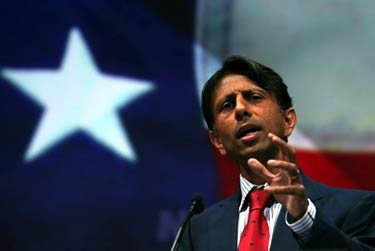Category Archive 'Politics'
26 May 2015


NYT:
John Scalzi, a best-selling author of science fiction, has signed a $3.4 million, 10-year deal with the publisher Tor Books that will cover his next 13 books.
Mr. Scalzi’s works include a series known as the “Old Man’s War†and the more recent “Redshirts,†a Hugo-award-winning sendup of the luckless lives of nonfeatured characters on shows like the original “Star Trek.†Three of his works are being developed for television, including “Redshirts†and “Lock In,†a science-inflected medical thriller that evokes Michael Crichton. Mr. Scalzi’s hyper-caffeinated Internet presence through his blog, Whatever, has made him an online celebrity as well.
Mr. Scalzi approached Tor Books, his longtime publisher, with proposals for 10 adult novels and three young adult novels over 10 years. Some of the books will extend the popular “Old Man’s War†series, building on an existing audience, and one will be a sequel to “Lock In.†Mr. Scalzi said he hoped books like “Lock In†could draw more readers toward science fiction, since many, he said, are still “gun-shy†about the genre.
Patrick Nielsen Hayden, the executive editor for Tor, said the decision was an easy one. While Mr. Scalzi has never had a “No. 1 best seller,†he said, “he backlists like crazy.â€
Scalzi has alienated a significant portion of his readership with sanctimonious hoplophobic blog posts (example) and by lining up with the Social Justice Warriors in the fighting over the Hugo Awards. My guess is that his backlisting powers will be declining.
11 May 2015


Rebecca Roache, Research Fellow and Senior Research Associate at Oxford, was moved to anger by the Conservative victory in the recent British election.
One of the first things I did after seeing the depressing election news this morning was check to see which of my Facebook friends ‘like’ the pages of the Conservatives or David Cameron, and unfriend them. (Thankfully, none of my friends ‘like’ the UKIP page.) Life is too short, I thought, to hang out with people who hold abhorrent political views, even if it’s just online. …
[T]he view that I have arrived at today is that openly supporting a political party that—in the name of austerity—withdraws support from the poor, the sick, the foreign, and the unemployed while rewarding those in society who are least in need of reward, that sells off our profitable public goods to private companies while keeping the loss-making ones in the public domain, that boasts about cleaning up the economy while creating more new debt than every Labour government combined, that wants to scrap the Human Rights Act and (via the TTIP) hand sovereignty over some of our most important public institutions to big business—to express one’s support for a political party that does these things is as objectionable as expressing racist, sexist, or homophobic views. Racism, sexism, and homophobia are not simply misguided views like any other; views that we can hope to change through reasoned debate (although we can try to do that). They are offensive views. They are views that lose you friends and respect—and the fact that they are socially unacceptable views helps discourage people from holding (or at least expressing) them, even where reasoned debate fails. Sometimes the stick is more effective than the carrot.
For these reasons, I’m tired of reasoned debate about politics—at least for a day or two. I don’t want to be friends with racists, sexists, or homophobes. And I don’t want to be friends with Conservatives either.
04 Nov 2013

“They were running the biggest start-up in the world, and they didn’t have anyone who had run a start-up, or even run a business,†said David Cutler, a Harvard professor and health adviser to Obama’s 2008 campaign.
WaPo: Politics Doomed the Obamacare Rollout.
23 Oct 2013


Jeanne Safer (Mrs. Richard Brookhiser) discusses her own marriage of political opposites.
This November fifth, like every Election Day for the last three decades, I’ll show up faithfully at my polling place rain or shine, even if there’s another Hurricane Sandy in New York City. Once again, I’ll be pulling the levers for some people I actually agree with, for some I’m not crazy about, and for others I’ve barely heard of. As long as they’re Democrats, they can count on my support.
It’s a matter of moral obligation, not just civic duty: I’ve got to cancel out my husband’s vote.
For thirty-three years I’ve been happily married to a man with whom I violently disagree on every conceivable political issue, including abortion, gun control, and assisted suicide. I thought the recent government shutdown was absurd, infantile, and destructive; he was a fan. And not only is he a conservative Republican, he’s a professional conservative Republican, a Senior Editor of National Review, the leading journal of conservative opinion in the country.
So why don’t we both just agree to stay home on Election Day? Because, even though I trust him with my life, I don’t trust him, and would never ask him, not to vote his conscience. It took our first decade together for me to accept that not even my considerable powers of persuasion as a psychotherapist—not to mention the self-evident correctness of my positions—would never make him change his mind, but, alas, it is so; he never even tried to change mine.
Other than my father, I never even knew any Republicans growing up, and certainly never had one for a boyfriend. But in my late twenties I joined a Renaissance singing group, and there he was—tall, clever, with intense blue eyes and a lyrical baritone. I couldn’t resist. I’d known and been treated abominably by too many men who shared all my opinions to let his convictions get in the way, and I’ve never regretted it. Our wedding was a bipartisan affair. My mentor, one of the early victims of the McCarthyite purges, gave me away, and my husband’s publisher, one of McCarthy’s most avid enforcers, gave a reading. Somehow everyone behaved, setting a trend that we have emulated with only a few brief exceptions ever since.
Read the whole thing.
It was my wife Karen, who introduced the future happy couple, at her singing group many long years ago. Jeanne really doesn’t like me. I argue with her.
20 Oct 2013


Tyler Cowan‘s evil twin Tyrone thinks that Republicans didn’t do so badly as the popular narrative maintains.
Tyrone: I read what a strategic disaster the fracas has been for the Republican Party and for the Tea Party movement in particular, but I don’t see it. Where I grew up, this counts as a successful stare-down. Most of the time, the pit bull does not in fact lunge for your throat, but it is hardly a mistake for him to snarl, even if that raises his borrowing rates.
Look where we stand. In real terms government spending has been falling. Sequestration appears to be permanent, or it will be negotiated away by Republicans in return for preferred changes in tax and spending policy. Leading Democratic intellectuals are talking about future fiscal bargains with no new taxes. The American public polls as increasingly conservative.
With this sequence of events, combined with 2011, the Republicans convinced some of their opponents that they are crazy and irresponsible, without actually being crazy (though they were irresponsible, but that is the whole point). I peaked once into Tyler’s Twitter feed, and I found several accomplished Democratic economists — yes brilliant economists, as all economists are — suggesting that any day now markets are going to notice the truly crazy character of the Republican House and price that into interest rates and stocks. Oh what a tale! (A more accurate reading of the more radical Republicans would in fact be more cynical and ordinary than most of the pablum served up by their critics.) Imagine that you control only the House and can manage to convince your opponents that you are stronger and more dedicated to your cause than in fact you are. Only the truly strong and dedicated can pull such a caper off!
Someday, if the Democrats wanted to raise the exemption level for the payroll tax, and pull in a lot of new revenue, what kind of opposition could they expect? Probably they will shy away from that battle altogether, for fear of another Ted Cruz filibuster.
Yes, Virginia (literally), protecting the brand does sometimes mean going down with the ship. …
Even if most Americans do not agree, it is now considered common to believe and to argue publicly that Obamacare represents the end of freedom in our time. If Obamacare turns out to fail in the eyes of the public, that condemnatory view is being held in the back of people’s minds, whether they admit it or not, whether they agree or not. They will start to agree more and more, the less generous their Medicare benefits look as time passes. The future counterrevolution in redistribution is going to have to come from somewhere and it is a major victory to cement the word “Obamacare†as a hypostatized “thingie†in people’s minds, for future reference.
The Republican tactics understand the importance of skewed pay-offs. In an age of political gridlock, the goal is not to maximize the expected value of your image, any more than you would do the same on a date. Rather the goal is to maximize the chances of moving your agenda forward, conditional on the existence of world-states where that might be possible. The harder it is to pull off change, the stupider your strategy will look in most world-states, but hey that is the price of admission to this game. Capital is to be periodically run down, and if in politics, as in management more generally, if you always look good you are doing something badly wrong.
Another fallacy is that no DC crisis would have focused more attention on the failings of the Obamacare exchanges in a useful manner. People, that is small potatoes. No one is going to repeal or even modify ACA because of a few weeks’ bad publicity at the opening. (Recall the Medicare prescription drug bill, which took weeks to get off the ground but now is beloved and is part of the permanent furniture of the universe, like Supersymmetry or quantum gravity.) If Obamacare is really going to do poorly, it is better if we build up high or least modest expectations for it. Imagine the Christmas present of learning you don’t really have insurance coverage after all. Or the New Year’s resolution that after you have been billed three times for the same policy, you vow to pay for only one of them and live with the bad credit rating until it gets straightened out. How about extreme adverse selection into the exchanges, resulting in 50-100% premium hikes in the first year of operations? (The lower premia are now, the better! Bread, peace, land! Ach du grüne Neune!) That’s what will get further traction for the Tea Party on Obamacare, not a bunch of bad reviews on opening day, as if the policy were no more than a mid-tier Jennifer Aniston movie (I can no longer refer to Sandra Bullock in this context), to be swatted down by mild tut-tuts of disapproval and inconvenience.
The very best victories are often described as ignominious retreats.
15 Oct 2013


Detail, Horatio Greenough, George Washington Attired in Roman Toga, 1841, National Museum of American History
Stratfor’s George Friedman thinks seriously about what the founders would have thought about the partisan stalemate in Washington.
The founders needed to bridge the gaps between the need to govern, the fear of tyranny and the uncertainty of the future. Their solution was not in law but in personal virtue. The founders were fascinated by Rome and its notion of governance. Their Senate was both a Roman name and venue for the Roman vision of the statesman, particularly Cincinnatus, who left his farm to serve (not rule) and then returned to it when his service was over. The Romans, at least in the eyes of the founders if not always in reality, did not see government as a profession but rather as a burden and obligation. The founders wanted reluctant rulers.
They also wanted virtuous rulers. Specifically they lauded Roman virtue. It is the virtue that most reasonable men would see as praiseworthy: courage, prudence, kindness to the weak, honoring friendship, resolution with enemies. These were not virtues that were greatly respected by intellectuals, since they knew that life was more complicated than this. But the founders knew that the virtues of common sense ought not be analyzed until they lose their vigor and die. They did not want philosopher-kings; they wanted citizens of simple, clear virtues, who served reluctantly and left gladly, pursued their passions but were blocked by the system from imposing their idiosyncratic vision, pursued the ends of the preamble, and were contained in their occasional bitterness by the checks and balances that would frustrate the personal and ideological ambitions of others.
The Founding Father who best reflects these values is, of course, George Washington. Among the founders, it is he whom we should heed as we ponder the paralysis-by-design of the founders’ system and the current conundrum threatening an American debt default. He understood that the public would be reluctant to repay debt and that the federal government would lack the will to tax the public to pay debt on its behalf. He stressed the importance of redeeming and discharging public debt. He discouraged accruing additional debt and warned against overusing debt.
However, Washington understood there would be instances in which debt had to be incurred. He saw public credit as vital and therefore something that ought to be used sparingly — particularly in the event of war — and then aggressively repaid. This is not a technical argument for those who see debt as a way to manage the economy. It is a moral argument built around the virtue of prudence.
After these excellent observations, though, George reaches a dubious conclusion.
I think the founders would have questioned the prudence of our current debt. They would ask if it were necessary to incur, and how and whether it would be paid back. They would also question whether economic growth driven by debt actually strengthens the nation. In any case, I think there is little doubt they would be appalled by our debt levels, not necessarily because of what it might do to the economy, but because of what it does to the national character. However, because they were moderate men they would not demand an immediate solution. Nor would they ask for a solution that undermines national power.
As for federally mandated health care, I think they would be wary of entrusting such an important service to an entity they feared viscerally. But they wouldn’t have been fanatical in their resistance to it. As much as federally mandated health care would frighten them, I believe fanaticism would have frightened them even more.
The question of a default would have been simple. They would have been disgusted by any failure to pay a debt unless it was simply impossible to do so. They would have regarded self-inflicted default — regardless of the imprudence of the debt, or health care reform or any such subject — as something moderate people do not contemplate, let alone do.
So, by this analysis (which I think is drawn unconsciously from the poisoned well of the establishment media), even though Obamacare and an ever-increasing and unsustainable public debt are both classic examples of the kind of fundamentally destructive perils to the Republic which the framers devised the Constitution specifically to avoid, good men must refrain from fully utilizing the House’s power of the purse to restrain the radicals and the corrupt because refusing to write checks to cover the debts they irresponsibly and uncontrollably pile up would mean the good men were being “immoderate.” Uh, huh!
Sorry, but I think it is appropriate to quote Justice Jackson to Mr. Friedman: “The Constitution is not a suicide pact.” And a one-sided political philosophy which demands that the forces of conservatism, liberty, and fiscal prudence must be moderate and cannot fight totally ruthless opponents who shrink from nothing with all their means simply guarantees that the democrats are always going to win.
When we have one of these policy confrontations, I would say, “Republicans, what would the democrats do?” The answer is: everything and anything necessary to win. In political wars, it is desirable to maintain a standard of behavior. It is desirable to set an example of moderation. But to set any kind of example, to have any impact on the future, to be remembered by history, you actually do have to win. Nobody, long years afterwards, says, they lost, but they were so well-mannered and restrained in their manner of being defeated that we are building them this monument.
We have, in this country, an ongoing political struggle between two parties. The Republican Party is commonly comprised of well-meaning, civic-minded and moderate men, successful businessmen, Rotarians who went on into public service. The democrat party, on the other hand, is full of machine politicians, of ruthless bastards with limitless ambition, of demagogues and crooks. Republicans would like to do politics in the genteel way you play a game of croquet. Democrats are professional, organized, and utterly and totally determined to win every time at any cost. We are doing politics as an obligation and a duty. They are doing politics to make a living. If a typical Republican leaves office, he is happy to go home. If a typical major democrat pol were to leave politics, he’d be in the gutter or in jail. The Republican Party is going to keep losing until its leaders realize that they are really fighting for the survival of the Republic and that they have to fight these people with no holds barred.
Read the whole thing.
05 Oct 2013


Peter Ferrara, at Forbes, argues that democrats are already failing in their calculated efforts to exacerbate the government shutdown and pin the blame on Republicans. He thinks the Republicans have a pretty simple winning strategy available.
When a reporter asked Harry Reid why the Senate would not pass a bill so children could continue to get their cancer treatments while the House-Senate budget battle dragged on, Reid responded, “Why would we do that?†and questioned the intelligence of the reporter. The obvious human answer was to save the lives of children. But Reid was not thinking about humanity. He was thinking about the political consequences of engineering a shutdown in further manipulation of the public against Republicans he is so certain the public will blame. In that context, his question made sense, including his disparagement of the reporter’s intelligence. Couldn’t she see the political value in denying health care to cancer stricken children, when the Republicans would be so obviously blamed for that?
But those bills were the beginning of the Republicans stumbling upon the right answer to the Democrats’ ploy. House Republicans should go back to regular order and start passing the remaining 11 or 12 appropriations bills to fund the entire government, except for Obamacare. Pass one each day, and hold a press conference to say the Republicans are ready to go to a Conference Committee with the Democrats if they disagree on the appropriations bill just passed. …
[I]f the Democrats disagree with the provisions of these appropriations bills, they can pass their own appropriations bills with different provisions, and go to a Conference Committee with the House to compromise over final legislation. This is standard procedure for passage of bills. Check your high school civics book. …
If Senate Democrats never get around to Conference Committee meetings on the appropriations bills, that would only reveal to everyone who is really responsible for the government shutdown after all. That would only mean that 800,000 nonessential federal employees out of 2.9 million would stay on furlough indefinitely. No harm to the public in that, and it would save a lot of money the government doesn’t have besides. Once House Republicans pass their appropriations bills, they can wait for Senate Democrats to show up to do their part as long as it takes.
31 Jul 2013


Even moderate Ron Fournier is clearly getting fed up with Barack Obama’s excuses and standard operating procedure of blaming Republicans when the country’s economic problems remain unaddressed.
Two New York Times reporters recently posited for President Obama this grim scenario: Low growth, high unemployment, and growing income inequality become “the new normal” in the nation he leads. “Do you worry,” the journalists asked him, “that that could end up being your legacy simply because of the obstruction … and the gridlock that doesn’t seem to end?”
Obama’s reply was telling. “I think if I’m arguing for entirely different policies and Congress ends up pursuing policies that I think don’t make sense and we get a bad result,” he said, “it’s hard to argue that’d be my legacy.”
Actually, it’s hard to argue that it wouldn’t be his legacy. History judges U.S. presidents based upon what they did and did not accomplish. The obstinacy of their rivals and the severity of their circumstances is little mitigation. Great presidents overcome great hurdles. …
In March, a reporter asked Obama why he didn’t lock congressional leaders in a room until they agreed on a budget deal. Obama’s answer was based on two assumptions. First, that his opinion is supreme. Second, he can’t break the logjam. What a remarkable combination of arrogance and impotence.
“I am not a dictator. I’m the president,” he said. “I know that this has been some of the conventional wisdom that’s been floating around Washington; that somehow, even though most people agree that I’m being reasonable, that most people agree I’m presenting a fair deal, the fact that they don’t take it means that I should somehow do a Jedi mind meld with these folks and convince them to do what’s right.”
Obama could still do great things. But not if he and his advisers underestimate a president’s powers, and don’t know how to exploit them. Not if his sympathizers give Obama cover by minimizing his influence. Cover to fail. Not if the president himself is outwardly and boundlessly dismissive of his critics, telling The New York Times, “I’m not concerned about their opinions.”
To say the situation is intractable seems akin to waving a white flag over a polarized capital: Republicans suck. We can’t deal with them. Let’s quit.
18 Jul 2013

Excess of Democracy ranks major law firms from most liberal to most conservative.
Hat tip to Richard Miniter.
19 Jun 2013


Bobby Jindal yesterday took issue with the calls for reforming the GOP in order to make it less conservative and more appealing to Obama voters.
At some point, the American public is going to revolt against the nanny state and the leftward march of this president. I don’t know when the tipping point will come, but I believe it will come soon.
Why?
Because the left wants: The government to explode; to pay everyone; to hire everyone; they believe that money grows on trees; the earth is flat; the industrial age, factory-style government is a cool new thing; debts don’t have to be repaid; people of faith are ignorant and uneducated; unborn babies don’t matter; pornography is fine; traditional marriage is discriminatory; 32 oz. sodas are evil; red meat should be rationed; rich people are evil unless they are from Hollywood or are liberal Democrats; the Israelis are unreasonable; trans-fat must be stopped; kids trapped in failing schools should be patient; wild weather is a new thing; moral standards are passé; government run health care is high quality; the IRS should violate our constitutional rights; reporters should be spied on; Benghazi was handled well; the Second Amendment is outdated; and the First one has some problems too.
Their philosophy does not work and it got our nation into the mess it’s in.
Eventually Americans will rise up against this new era of big government and this new reign of politically correct terror.
16 May 2013

With scandals popping everywhere around the Obama Administration, this BBC guide to euphemisms employed by politicians in the past is bound to come in handy. Joe Biden frequently seems “tired and emotional” and rumors abound that President Obama is the sort of fellow who “watches badgers.”
Hat tip to Walter Olson.
23 Feb 2013


Yuval Levin puts the oh-so-terrible impact of the automatically-triggered sequester into perspective. It doesn’t shut down the federal government. It does not starve the poor or leave America defenseless. It doesn’t even really reduce federal spending. It merely slightly slows already budgeted spending.
Let’s get a grip. In its first year, fiscal year 2013, which ends September 30, the sequester would involve a total of $85 billion in spending cuts. That’s a reduction of 3% from what federal spending otherwise would have been this year. But even that significantly overstates the effects the sequester would actually have this year. The federal government is so lumbering and huge that it can’t even reduce its own spending that quickly. That’s why “first year†cuts are always so difficult in even the most fiscally conservative budget proposals. The Congressional Budget Office (on page 11 of its latest budget outlook, published earlier this month) estimates that while FY 2013 spending will ultimately be reduced by $85 billion, “discretionary outlays will drop by $35 billion and mandatory spending will be reduced by $9 billion this year as a direct result of those procedures; additional reductions in outlays attributable to the cuts in 2013 funding will occur in later years.†So in this fiscal year, we would actually be looking at a $44 billion spending cut, or less than a 1.5% reduction from what federal spending otherwise would have been. It would mean that federal spending in 2013 will be about $3.553 trillion. In 2012, federal spending was $3.538 trillion. Yes, that means that even with the sequester we will be spending slightly more in 2013 than we did in 2012. In fact, we will be spending more than we did in any year in American history except for 2011 (when we spent $3.598 trillion).
—————————-
Democrats and their media allies will be blaming Republicans, if the Sequester comes to pass, but Bob Woodward (no Republican) points out the truth.
What is the non-budget wonk to make of this? Who is responsible? What really happened?
The sequester and the debt ceiling, explained: President Obama and lawmakers are facing several important fiscal deadlines. One is to avoid the $1.2 trillion in spending cuts included in sequestration and another is raising the country’s debt ceiling. Here is a look at some of the issues involved in these two fiscal challenges.
The finger-pointing began during the third presidential debate last fall, on Oct. 22, when President Obama blamed Congress. “The sequester is not something that I’ve proposed,†Obama said. “It is something that Congress has proposed.â€
The White House chief of staff at the time, Jack Lew, who had been budget director during the negotiations that set up the sequester in 2011, backed up the president two days later.
“There was an insistence on the part of Republicans in Congress for there to be some automatic trigger,†Lew said while campaigning in Florida. It “was very much rooted in the Republican congressional insistence that there be an automatic measure.â€
The president and Lew had this wrong. My extensive reporting for my book “The Price of Politics†shows that the automatic spending cuts were initiated by the White House and were the brainchild of Lew and White House congressional relations chief Rob Nabors — probably the foremost experts on budget issues in the senior ranks of the federal government.
Obama personally approved of the plan for Lew and Nabors to propose the sequester to Senate Majority Leader Harry Reid (D-Nev.). They did so at 2:30 p.m. July 27, 2011, according to interviews with two senior White House aides who were directly involved.
Nabors has told others that they checked with the president before going to see Reid. A mandatory sequester was the only action-forcing mechanism they could devise. Nabors has said, “We didn’t actually think it would be that hard to convince them†— Reid and the Republicans — to adopt the sequester. “It really was the only thing we had. There was not a lot of other options left on the table.â€
/div>

Feeds
|















